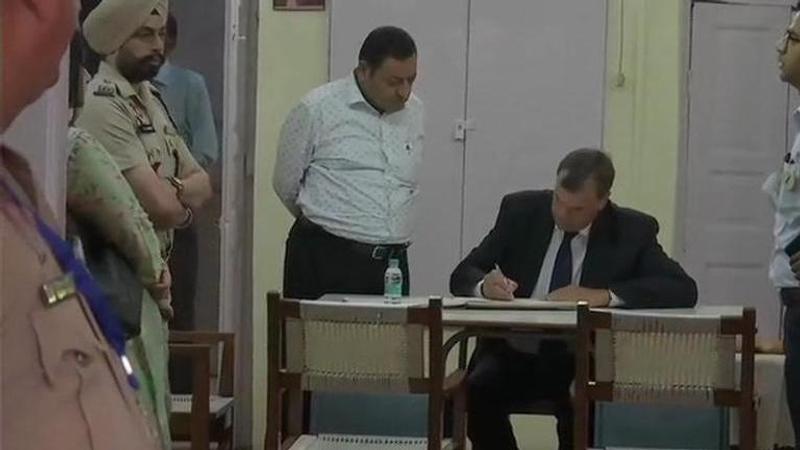Published 09:13 IST, April 13th 2019
'We deeply regret what happened': British High Commissioner to India Sir Dominic Asquith pens down a message in the visitor's book on the 100th anniversary of the Jallianwala Bagh massacre. Read here
Considered one of the deadliest attacks in the history of the world, the Jallianwala Bagh Massacre led to the deaths of hundreds of unarmed Indians by the soldiers of the British Indian Army in Amritsar.

April 13, 2019, marks the 100 years of the Jallianwala Bagh massacre. Considered one of the deadliest attacks in the history of the world, the Jallianwala Bagh Massacre led to the deaths of hundreds of unarmed Indians by the soldiers of the British Indian Army in Amritsar.
On this occasion, British High Commissioner to India Sir Dominic Asquith visited Jallianwala Bagh to pay homage to the martyrs. He also jotted down a message in the visitor's book which read:
"The event of Jallianwala Bagh 100 years ago reflects a shameful act in British-Indian history. We deeply regret what happened and the suffering caused. I am pleased today that the UK and India have remained committed to developing together a thriving 21st-century partnership".
Take a look:
On Wednesday, British Prime Minister Theresa May described the Jallianwala Bagh Massacre on April 13, 1919 as a "shameful scar" on the British Indian history. She, however, stopped short of a formal apology demanded by a cross-section of British parliamentarians in the previous debates. In a statement, marking the 100 years of Jallianwala massacre, she said:
"The tragedy of Jallianwala Bagh of 1919 is a shameful scar on British Indian history. As Her Majesty the Queen (Elizabeth II) said before visiting Jallianwala Bagh in 1997, it is a distressing example of our past history with India."
Meanwhile, Congress President Rahul Gandhi, Punjab CM Captain Amarinder Singh and Navjot Singh Sidhu arrived at Jallianwala Bagh to payed homage to the martyrs.
Updated 09:13 IST, April 13th 2019






